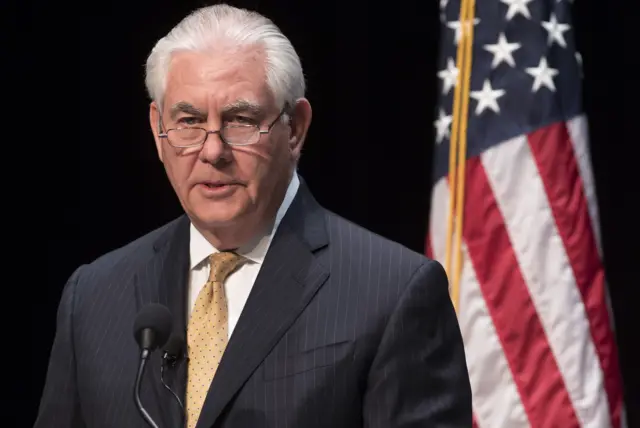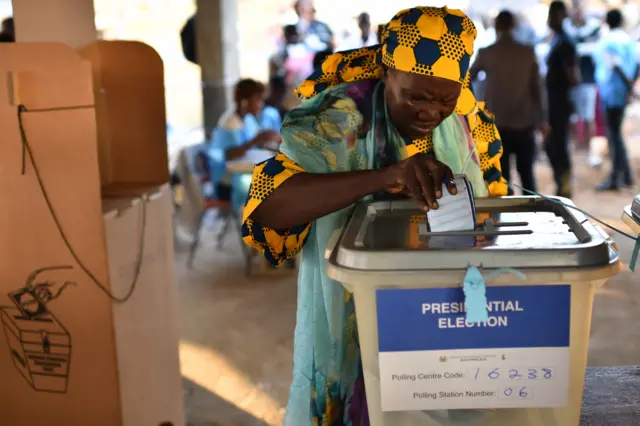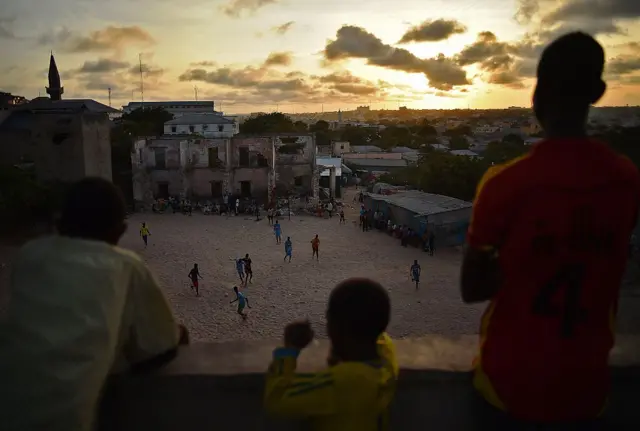Analysis: Bridge building for US Secretary of State after Trump commentspublished at 10:49 GMT 7 March 2018
Fergal Keane
BBC Africa editor
 Image source, Getty Images
Image source, Getty ImagesAhead of his trip to five African countries, the US Secretary of State Rex Tillerson gave a speech in Washington. The BBC's Africa editor Fergal Keane takes a closer look at the speech, and what the US politician hopes to achieve.
After President Trump’s reported use of foul language to describe African countries in January - words denounced as racist by the African Union - the Secretary of State knows he has much bridge building to do on his first visit to the continent.
His essential message was that America was a true friend to Africa unlike China, which he said was encouraging dependency and corruption with its lending and investment. Mr Tillerson added that America would do more to reduce trade and investment barriers for African partners.
His announcement of more than $500m in humanitarian assistance for several countries threatened by famine will be welcomed, but Mr Tillerson works for a President who has repeatedly spoken of reducing America’s burdens abroad – a point implicit in his remarks on combating terrorism on the continent.
These remarks come against the backdrop of potentially sweeping cuts to American contributions to peacekeeping and aid operations – at a time when crises in the Democratic Republic of Congo, the Central African Republic, South Sudan, among others, have placed immense strain on existing UN operations.
In an administration that has often struggled for coherence in its foreign policy, and which lives by the maxim of America First, it would be unrealistic to expect Secretary Tillerson to deliver a transformation in the relationship between US and Africa.
Read more: Rex Tillerson slams China's relationship with Africa

